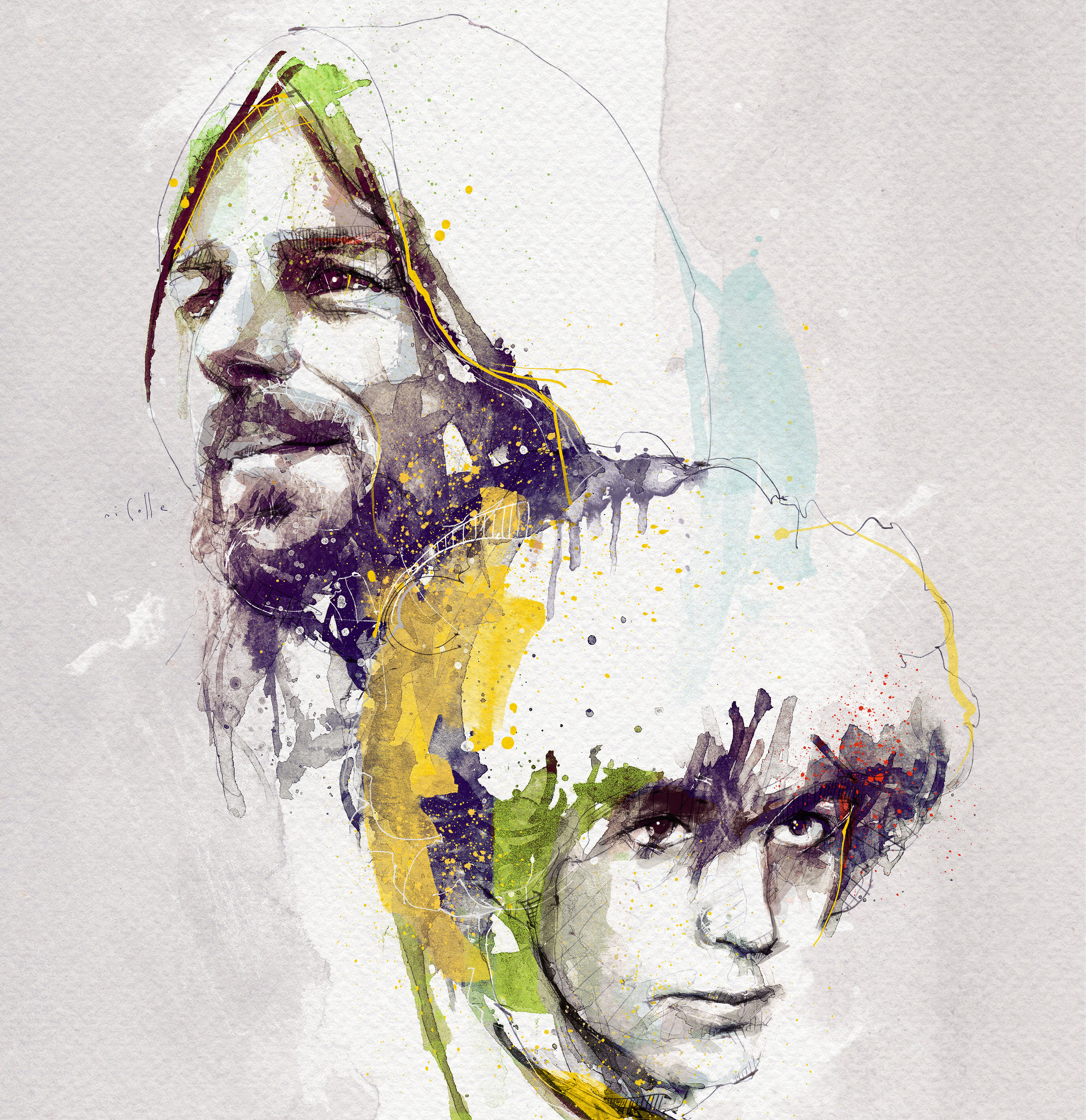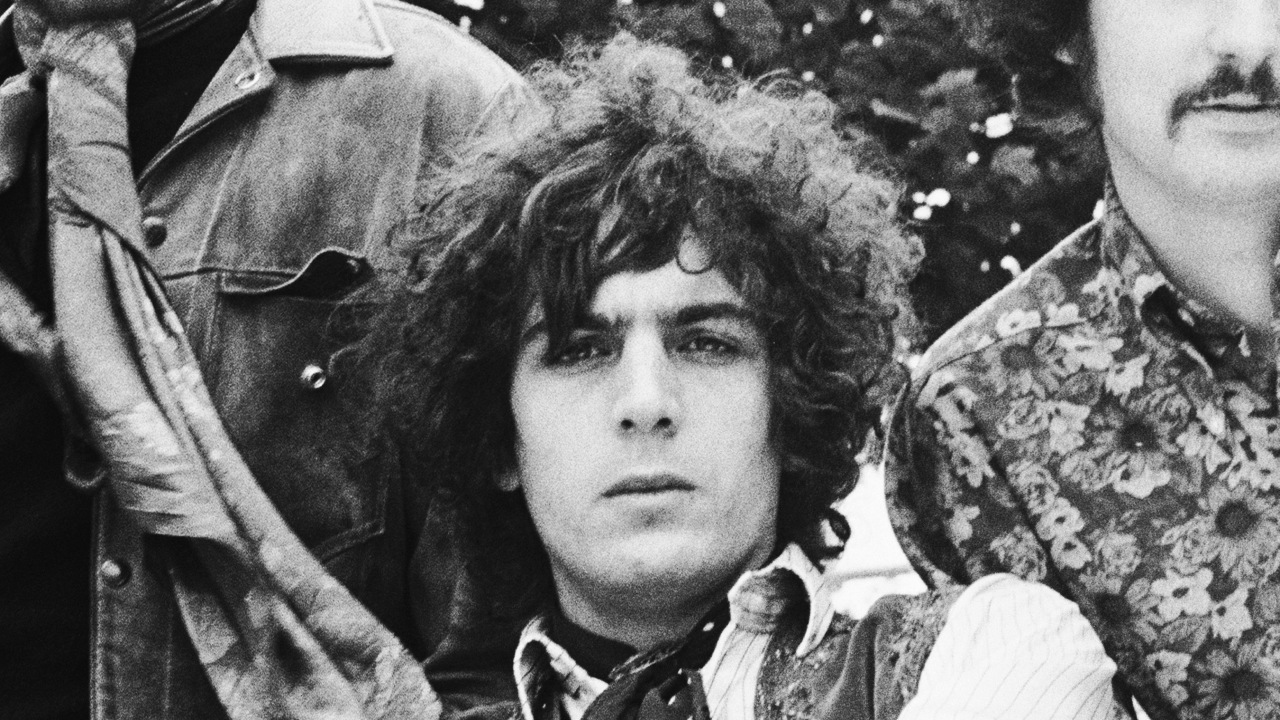The loss of Syd Barrett and Rick Wright marked the end of two eras. Yet before Waters and Gilmour took control of the band it was Syd’s scribbly guitar and Rick’s fairy-tale keyboards that helped define the Pink Floyd sound.
In different ways, both Syd Barrett and Rick Wright were let down by Pink Floyd. Neither really wanted to leave the group, yet both were forced to, leaving a nasty taste in the mouth, no matter how well Roger Waters and David Gilmour managed without them.
Oh, Syd was mad, though, wasn’t he…? Actually, he had never been required to take medication specifically for his mental health. There was some speculation that he might have suffered from Asperger’s syndrome, a developmental disorder on the autism spectrum. Classic symptoms include difficulty with social interactions and incorrectly interpreting social cues. Asperger’s sufferers are often highly intelligent, just unconcerned with anything that doesn’t directly affect them.
As for Wright, he was a victim of Waters’s ungovernable egotism, banished to the shadows after The Wall. Go back to those earliest Floyd recordings, though, and you’re reminded that neither Waters nor Gilmour had much to do with the musical mien of a group that, at its best, relished its outsider status, as evidenced by its two most fragile personalities: Barrett and Wright.
Listen again to Matilda Mother, the first track recorded for their debut album The Piper At The Gates Of Dawn, co-written by Barrett and Wright and with Rick handling most of the lead vocals, and you hear the sense of wonder, that characterised their best work in the years to come.
The same goes for Astronomy Domine, again written by Barrett and Wright, with the two of them sharing lead vocals. All the musical mystery and slightly hysterical lyrical edge that defined Pink Floyd up to and including Wish You Were Here is already there. ‘Floating down, the sound resounds,’ sing Syd and Rick as the carnival-esque music, chiefly provided by the same two insouciant musicians, swirls around them.
In so many ways, Wright was the yin to Barrett’s yang; as pretty as Syd, but full of light where Syd was found by darkness, and almost as prolific on his fairy-tale keyboards and buttercup vocals as Syd was on his scribbly guitar and permanently astonished songs. And as easy to scare away when things finally got too much.

After Syd ‘left’ Floyd, shunted aside without actually being told his services were no longer required, it was Rick who picked up the baton and attempted to maintain the psychedelic footprint of Barrett’s best songs. He did this first by writing the distinctly Barrett-esque Paint Box. In the song’s black-and-white promo clip, Rick sings in the same whimsical style as Syd, and looks remarkably similar to him in his fedora, scarf and dark stare.
Wright does an even more passable imitation with Floyd’s next single, It Would Be So Nice, on which he sings lead. But it wasn’t a hit, and the next one, Let There Be More Light, although co-sung by Wright, was a Waters song, with Rick’s Remember A Day relegated to the B-side.
Indeed, the first post-Barrett Floyd album, 1968’s A Saucerful Of Secrets, was dominated by Wright originals or co-writes, his vocals used again to replicate Barrett’s in a ‘can’t see the join’ attempt to pull off the impossible.
Speaking years later, Wright admitted he cringed at some of the material on Secrets: “We were pretty amateurish at the time. Syd was the songwriter, and then we came in and had to take over the songwriting and it was a lot of responsibility to assume. We could never write like Syd. We never had the imagination to come out with the kind of lyrics he did.”
Nor did they share his lysergic dreams, according to Wright: “I took two trips in my life. The first was quite enjoyable, and that was before I was in the band. Then I took one more and I didn’t enjoy it at all, so I never took it again. It certainly destroyed Syd.”
As Ron Geesin, the avant-garde performer who helped write Atom Heart Mother, says now of Floyd’s other lost genius: “Rick was just very, very quiet, and he’d just be very nice, almost demure. He would wait and see how the others felt. He wouldn’t react, just went along with it.”
But if Barrett had been the psychedelic poster boy who took an otherwise ordinary R&B band and turned them into musical extra-terrestrials, it was Wright who helped them become progressive rock goliaths in the 70s. And all in the space of a single piano note that Wright then fed into a Leslie speaker and resembled the ping of a submarine’s sonar. It was in the sessions for 1971’s Meddle, and the ‘ping’ introduced the Barrett-less Floyd’s first genuine masterpiece: Echoes, a 23-minute track that took up the whole of the album’s second side.
There would be other great Rick Wright moments to come, including the elegiac The Great Gig In The Sky and various parts of Shine On You Crazy Diamond, to name just two. But while Barrett’s significance in rock history continues to grow since his death in 2006, Wright’s was all but forgotten before the release of 2014’s The Endless River, a requiem of sorts to the much-overlooked talents of Syd’s quietly shimmering shadow.
When Wright died from cancer in 2008, it caused Gilmour to reflect: “No one can replace Richard Wright. He was my musical partner and my friend. In the welter of arguments about who or what was Pink Floyd, Rick’s enormous input was frequently forgotten. He was gentle, unassuming, and private, but his soulful voice and playing were vital, magical components of our most recognised Pink Floyd sound. I have never played with anyone quite like him.”

